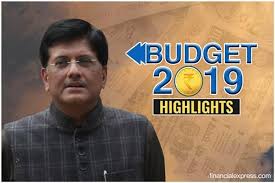
1. The finance ministry has extended the deadline for filing income tax return
2. New deadline for ITR submission for FY 2018-19 extended to August 31
3. This year CBDT had extended the deadline for employers to file their TDS returns
4. If the ITR is filed between January 1 and March 31, then late filing fees of Rs 10,000 will be levied
The finance ministry has extended the deadline for filing income tax return (ITR) for FY2018-19 by individuals to August 31, 2019 from July 31, 2019. The extension is a much needed relief as there were multiple problems being faced by individuals in filing returns by July 31. July 31 was the deadline to file income tax returns for most individuals and HUFs. This is that category of individuals and HUFs who are not mandatorily required to get their accounts audited for tax purposes.
Many chartered accountant/tax practioner societies had appealed to the government to extend the ITR filing deadline to provide sufficient time to individuals to file ITR properly. There are many reasons for this.
This year CBDT had extended the deadline for employers to file their TDS returns, i.e., Form 24Q, from May 31, 2019 to June 30, 2019 and consequently deadline of issuing Form 16 by the employer was also extended from June 15, 2019 to July 31, 2019. Consequently, employees wait employees waiting to get their Form 16s to file their ITRs were left with only 21 days to file their tax return by the earlier deadline of July 31.
If the ITR is not filed by an individual before the expiry of the deadline, which is usually July 31, then the individual would have to pay a late filing fee of Rs 5,000, if filed by December 31. If the ITR is filed between January 1 and March 31, then late filing fees of Rs 10,000 will be levied.
With extension of the deadline, individuals will have more time to file their ITRs without worrying about late filing fees.
Even though it is easier to fill salary details in ITR-1 this year as individuals are required to just copy-paste the same from Form 16, sources of interest income are required to be provided in greater detail. This could be a tedious process.
Further, while the tax department has started providing pre-filled XML for ITR forms 1 to 4, the pre-filled XML file for ITR-2 does not contain salary details which individuals have to fill-in by themselves. ITR-2 asks individuals to provide detailed break-up of salary such as basic, HRA and so on received by choosing the options from the drop-down menu.
The calculation of long-term capital gains (LTCG) tax on equity shares and equity mutual funds is also a complicated process due to the grandfathering clause which came into effect from FY2018-19 onwards. In addition to that, individuals were also required to provide details such as ISIN code/Folio number, name of shares/units and so on for sale of equity shares and equity mutual funds. However, later on this was made optional.
Source: Economic Times



